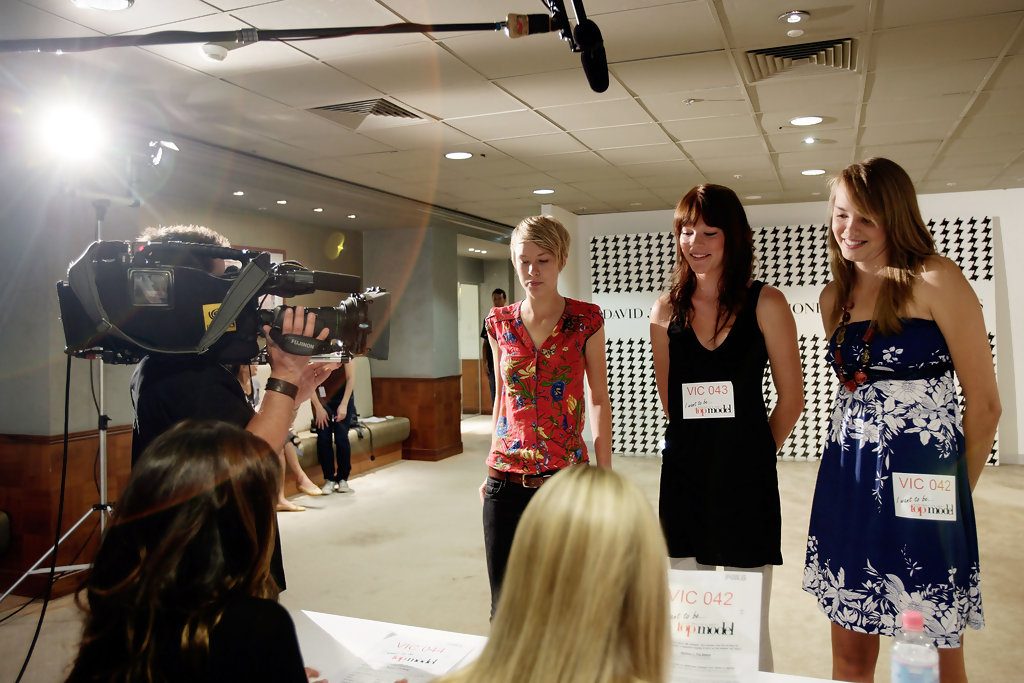Like they always say, auditions are pretty much like job interviews. Casting directors screen the actors who are interested in joining a production to know whether they are worth investing in. Get a problematic talent in, and they’ll encounter significant problems on set that could’ve been avoided if only they asked the right questions during the casting process. There’s a reason why skill is not the only criterion casting directors are on the lookout for. Here is a list of possible questions that some casting directors may ask you to get to know you at least professionally when you audition for a role.
Possible Questions Casting Directors May Ask You Actors During Auditions
 forbes
forbesWhen did you first perform?
This question assesses how long you’ve been in the community and allows them to weigh your experience and the effects it has on your attitude, industry knowledge, reputation, and accomplishments. Are you a newbie? A low-key veteran? What do your projects say about you and the span of time since you began performing professionally? Could you be a prodigy? Could you have left red flags in your trail that they should be warned about? Should they do a background check? Sounds intimidating, so you better prepare for this.
What have you been working on?
To gauge your dedication to your acting career, casting directors have to know if you are currently working on something. Maybe you’re in a play. Maybe you just finished a student film. At the very least, actors should be auditioning and submitting themselves for projects. It’s rather skeptical when an actor does nothing for no reason (not auditioning, not submitting, not acting, not taking class). Maybe it’s been a while since you’ve had a job, but an actor committed to the career should actively look for events, opportunities, and classes to keep skills sharp and to stay connected to the community. Whether you’ve just done a mailing, updated yourtheir website, or finished editing your reel, staying active shows casting directors that you’re serious about your career. If you haven’t found work in a while, what initiative could you have taken as an actor?
What is your biggest accomplishment to date?
 rdhmag
rdhmagThe producer might need to know this information to market the project. Have you had an award or nomination under your belt? Based on your years of experience, is your accomplishment commendable? Some actors get their big break on their first role. Some work hard to get a well-deserved nomination. Knowing an actor’s major achievements in the field will set proper production expectations and determine which demands the actor may be new to.
What types of projects are you looking to work on?
For this question, the casting director may ask you to specify. Are you looking to work in TV, film, theater, industrials, commercials, music videos, or web series? Are you hoping to work in musicals, black comedies, soap operas, pharmaceutical videos, full budget features, or unpaid student films? It’s important to know your focus, comfort zone, and challenges. So if you don’t know yourself that much yet, you better start now.
What types of roles do you see yourself being cast in?
Most actors don’t want to be typecast into a particular role, but it’s also important to know one’s strengths and check if they’re handling new challenges well. Having a clear sense of your identity, style, and type is always a great start. Your answers allow casting director to know if you’re willing and comfortable with being asked to show versatility or if you’d rather stay being cast according to your type. If you actually do a good job in the project, casting directors can then recommend you to other auditions that suit you! This means more opportunities!
 businessman
businessman
How would you describe your acting style?
This question tells a lot about an actor’s education. For example, an answer like “comedic” or “dramatic” won’t be helpful. This question is usually asked to check whether you know the established teachers of acting techniques like Meisner, Stanislavsky, Adler, Strasberg, and Chekhov. Some casting directors have to know whether an actor prefers to work organically or if they prefer to do heavy research to prepare for the character and what lies ahead. Are you the type of actor who needs a lot of direction, or do you prefer to be given time to internalize? Casting directors may need a heads-up in case you are a method actor. This helps them grow their database of talents and match you with other actors and future directors.
What is the hardest role you’ve played, and how did you handle it?
Casting directors ask this question to find out what you think is challenging and to assess how you handle stressful situations. Do you drag the team down with negative energy? Do you handle problems healthily? What do you consider to be your limitations when playing roles? Did you manage to bounce back from the problem and learn from the experience? Does the lesson have any relevance to the project at hand? How did your performance for the role turn out in the end? If caught off-guard, your answers may worry the casting director. Based on the personality they’ll see and the nature of the current project, the casting director will then evaluate whether you have improved by then on your weakness. Better be ready!
Which actor do you admire the most and why?
 thebalancecareers
thebalancecareersMany actors hesitate with this question, and that’s okay. Knowing your role model allows casting directors to judge your taste, knowledge of the industry, and your ability to look at acting with a critical eye. If you can’t come up with a reputable name, do your really even care about keeping up with the industry? If you can’t explain why you admire the actor you named, do your really admire them for their acting? If you choose a rather notorious actor, shouldn’t the casting director be questioning your standards?
If you weren’t acting, what would you have been doing?
This question tells a lot about your personality type, interests, and knowledge in certain subjects. The answer you’ll give might also reveal your existing skill sets aside from acting. Depending on the project, you might be required to dance, sing, play a musical instrument, drive, spar, use weapons, ride horses, or speak a foreign language. Actors who already have the needed skills will be the most appealing to cast because the production won’t have to spend time and money giving lessons.
 careerfoundry
careerfoundryConclusion
Asking these questions will serve as the casting director’s basis for assessing the individual behind an actor that the production will be dealing with during the course of the project. Good answers will not guarantee a good audition performance, but good answers paired with a convincing performance will definitely help them determine which actor to book for the role. These questions can be pretty scary if you don’t see them coming, so prepare yourself now!